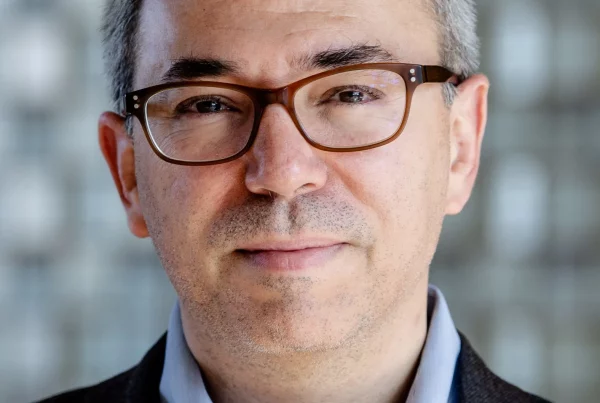AMY EDMONDSON
AUTHORITY ON PSYCHOLOGICAL SAFETY AND TEAM LEARNING IN THE WORKPLACE; BESTSELLING AUTHOR, “THE FEARLESS ORGANIZATION” (2018); NOVARTIS PROFESSOR OF LEADERSHIP AND MANAGEMENT, HARVARD BUSINESS SCHOOL; #1 RANKED MANAGEMENT THINKER IN THE WORLD, THINKERS50
AMY EDMONDSON
Amy Edmondson is the Novartis Professor of Leadership and Management at Harvard Business School. She is Ranked #1 Ranked Management Thinker in the World by Thinkers50. Amy is recognised by the biannual Thinkers50 global ranking of management thinkers since 2011, she was ranked #3 in 2019, she received their Breakthrough Idea Award in 2019, and the Talent Award in 2017. She was also named the 2021 Champion of Talent Development by the Association of Talent Development (ATD).
Amy has been studying psychological safety and workplace behaviours for over 20 years. During that time, her work has helped major firms vastly improve performance by building an environment of psychological safety, transparency and collaborative teaming, which ultimately leads to more effective operations, invested employees and a healthier bottom line.
For more information on Amy see her full Bio Below.
Topics:
Amy Edmondson’s Roadmap to Trust and Psychological Safety in the Workplace
Want to Improve Your Organization? Make It Fearless
When looking to improve operations, organisational leaders have a powerful tool at their disposal, more valuable than focus groups and surveys combined: their employees. Leaders just need to nurture an environment where employees feel safe and empowered to share their thoughts, point out problems and, ultimately, be more innovative. For over 20 years, Harvard Business School Professor Amy Edmondson has been studying how workplace behaviors affect performance. Her research confirms that organisations that create paths for speaking up are more effective in dealing with challenges of every kind, and markedly improve performance across the board, including the bottom line. Edmondson calls this an environment of psychological safety, and when working with firms to identify barriers to success that are often hidden inside a workplace culture, she employs the well-researched methodologies outlined in her bestselling 2018 book, “The Fearless Organization.” Through keynotes, workshops and confidential advisory meetings, Edmondson teaches organizations how to continuously improve performance by fostering a culture of psychological safety in which problems can be identified and addressed in an atmosphere of learning, cooperation and teamwork.
Teaming Toward Innovation Breakthroughs
In today’s fast-moving, 24/7 business world, people are increasingly – especially in the COVID-19 era – working with off-site team members, many of whom are located across towns, countries and time zones, and often tackling projects on the fly. Some may even speak other languages, use unfamiliar terms and have completely different value systems. In the context of her work with major firms, Harvard Business School professor Amy Edmondson views teaming as a verb, an activity that happens when disparate stakeholders come together to create, innovate, solve problems and make decisions, usually around complex projects with many moving parts and high-pressure deadlines. During her 20-plus years studying workplace behaviors, Edmondson has developed and implemented successful teaming methodologies built around such factors as open-mindedness, humility, curiosity and willingness to listen, learn quickly and take risks. Through workshops, keynotes and advisory meetings, she teaches leaders and team members at organizations how to use these tools to “team” more effectively, efficiently, creatively and cooperatively in order to improve individual and organisational performance.
Leading Through Crisis: Leveraging Teaming to solve problems and innovate.
In 2016, Harvard Business School Professor Amy Edmondson co-authored a now prescient book called “Building the Future: Big Teaming for Audacious Innovation.” The themes she covers are even more relevant today as organizations often must use cross-sector collaboration to reframe operations in response to the COVID-19 crisis. In this talk, Edmondson discusses the value of successful teaming in a crisis and shares methods and exercises she’s developed during her more than 20 years of research into workplace behaviors and learning to help bridge the “culture clash” that frequently thwarts collaboration among diverse experts. Edmondson sees leadership as extremely critical during a crisis, pointing out that successful changes do not and will not happen spontaneously. During her keynotes, workshops and advisory meetings, she shares concrete tools leaders and their teams can use to innovate when faced with disruption so they can envision and create a more robust future.
Books:
- Teaming: How Organizations Learn, Innovate and Compete in the Knowledge Economy” (Jossey-Bass, 2012),
- “Teaming to Innovate” (Jossey-Bass, 2013)
- “Extreme Teaming” (Emerald, 2017) – explore teamwork in dynamic organizational environments.
- “Building the Future: Big Teaming for Audacious Innovation” (Berrett-Koehler, 2016)
BIOGRAPHY
Amy Edmondson, a renowned expert on organisational learning and leadership and the #1 ranked thinker in the world by Thinkers50, she has been studying psychological safety and workplace behaviours for over 20 years. During that time, her work has helped major firms vastly improve performance by building an environment of psychological safety, transparency and collaborative teaming, which ultimately leads to more effective operations, invested employees and a healthier bottom line. She shares a handful of representative case studies in her 2018 bestselling book, “The Fearless Organization: Creating Psychological Safety in the Workplace for Learning, Innovation and Growth.”
As the Novartis Professor of Leadership and Management at HBS – a chair established to support the study of human interactions that lead to the creation of successful enterprises – Edmondson helps organizations identify barriers to success that are often hidden inside a workplace culture by ensuring people feel safe to speak up about problems they see and welcome to offer suggestions for doing things better, without fear of reprisal.
“Absent data on what’s not working, it’s all but impossible to know what to fix and how to fix it. No data, no progress,” wrote Edmondson in a March, 2020 Harvard Business Review article. “It takes courage to choose transparency — and wisdom to know that the choice is the right one for achieving the goals that matter to all.”
Over the years, Edmondson and her colleagues have conducted numerous studies showing the progress made at companies where problems were “placed firmly in bright sunlight” and highlighting the catastrophes that ensued when they were not. The results further confirmed that organizations that create paths for speaking up are more effective in dealing with challenges of every kind.
While any organization can be classified as a complex, error-prone system, Edmondson sees hospitals as particularly revealing case studies since activities move quickly and the stakes are high. One of her cases involved a hospital setting rife with finger pointing and blame that made it extremely difficult for anyone to speak up about mistakes and problems. Edmondson documents how a new COO worked to shift the culture by reframing the language around problems, changing words like “error” to “accident” and “investigation” to “study.” This moved failure analyses from an exercise in “who did it?” to a neutral “what happened?” which, in turn, gave employees a comfort level with reporting problems and superiors the information they needed to address issues and make changes.
“When the bad news starts pouring in — whether reporting crimes in a city, medical errors in a hospital, or new patient cases in a pandemic — this actually means you’ve jumped over your first hurdle to success,” says Edmondson. “With accurate information, people can turn their attention and skills to the challenges of developing novel solutions to the newly visible problems. Rather than living with false confidence that all is well, leaders and subject matter experts alike can instead get to work on what needs to be done.”
And for those companies who believe everything is fine, Edmondson warns that may not be good enough, and certainly won’t be five years from now.
“You can be part of a great organization that is still a complex, error-prone system,” says Edmondson. “Leaders must assume around every corner is a potential problem or a chance to do something better. The idea is to flip thinking from ‘we don’t have a problem’ to “how can we improve?”
PLANNING AN EVENT?
For more information on this speaker, contact Oration Speakers directly.






